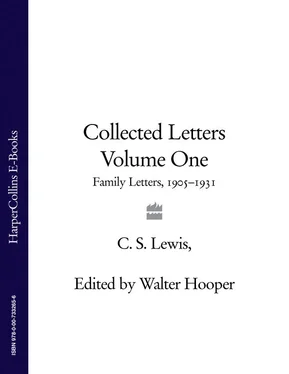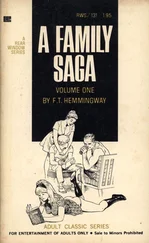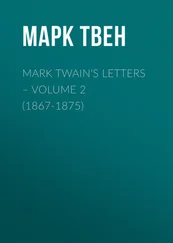The ‘Faerie Queen’ which I told Mullens to send here as soon as it came has now arrived, and I am very pleased with it. If a bill comes from Osbornes for those records, please send it on at once as I have a cheque of W’s. made out (or whatever the phrase is) to T.E. Osborne to pay it withal. However, no bill ought to arrive as I am asking Arthur to tell the ‘young person’ to send it here. And by the by, talking about cheques, I am not sure whether I asked you to take the cheque out of my cash box in the little end room and turn it into money some time before next holidays. Would you please do this? Hoping you are carrying on all right.
your loving
son Jack
TO ARTHUR GREEVES (LP V: 50-1):
[Gastons
1 February 1916]
Dear little Archie,
Oh Gods of friendship, has such devotion ever been witnessed as mine! I am just at the beginning of a heavenly new book, I am just at the end of a long day’s work, and yet I spend my spare time in writing letters. I hope you duly appreciate the sacrifice of a fresh young heart offered up on the savage altar of 3 –well to get on.
On the Saturday 4 in London I wasted 7/6 on going to a matinee of Carmen. There was no one in the cast of whom I had heard before and no one whom I want to hear again. Carmen herself was tolerable, but the rest, especially the Toreador, were fiendish. With the opera too I was awfully disappointed, although there is certainly a lot of beautiful music in it–particularly in the preludes to the acts (oh, one thing was good–the orchestra: they played that intermezzo that I have exquisitely) and in the scene among the mountains. But one does get so sick of all the tedious melodrama, all the blustering orchestration, and sticky tunes of good old fashioned operas. Then too there are a pair of villains in it who have a ghastly resemblance in their clownings to that other pair in Fra Diavolo–do you remember those awful creatures? So on the whole I was very fed up with this world by the time I reached dear Bookham. I find–of course–my beloved fellow pupil.
Since then I have been cheered up by the arrival of my new ‘Faerie Queen’ in the red leather Everyman. I can’t see why you so dislike this edition: and if you have noticed the effect that their backs have when two or three are together in a shelf I am sure you do really appreciate them. I have read a good chunk of this and have also re-read Jane Eyre from beginning to end–it is a magnificent novel. Some of those long, long dialogues between her and Rochester are really like duets from a splendid opera, aren’t they? And do you remember the description of the night she slept on the moor and of the dawn? You really lose a lot by never reading books again.
The other book–which I am denying myself to write to YOU, yes YOU of all people–is from the library by Blackwood called ‘Uncle Paul’. 5 Oh, I have never read anything like it, except perhaps the ‘Lore of Proserpine’. When you have got it out of your library and read how Nixie and Uncle Paul get into a dream together and went to a primaeval forest at dawn to ‘see the winds awake’ and how they went to the ‘Crack between yesterday and tomorrow’ 6 you will agree with me.
It was most annoying not getting my new records before I came back, wasn’t it? Tell the girlinosbornes–the next time you go to see Olive–to send the bill for them to my address here at once. I do hope my Caruso 7 ‘E lucevan e stella’ 8 is going to be a success. Talking about that thing, does it convey anything to you? To me it seems to be just abstract melody. The actual scene I believe is a man on the battlement of a castle writing a letter–but you have probably read Tosca in that beastly potted opera book.
I was interested in what you said about the ‘Brut’. 9 You ought to get it in Everyman.
Yours
Jack
TO HIS FATHER (LP V: 51-2):
[Gastons
6? February 1916]
My dear Papy,
Thanks very much for the cheque, which I enclose, signed as you told me. I am afraid however that I must trouble you again: one of my pairs of shoes has finally given out ‘beyond the hope of uttermost recall’ and I want you please to get me a new pair, or else tell Annie to do so. The mysterious piece of paper which I am sending is a map of my foot so that the knave in the shop will know what size to give you. I am very sorry if this is a nuisance, and will take care next term to set out well equipped with hats, coats, shoes and other garments, like the men in the furnace.
That business about Warnie’s commission, though of course important in itself, is as you say a nice example of war office methods. If big things are managed in the same way as these small ones, it promises well for the success of the war doesn’t it? Another thing also struck me: we have often wondered and laughed at some of the people who have commissions. It becomes even funnier when one reads the formula, ‘reposing special trust and confidence in your loyalty, courage, and good conduct’: we remember that the Jarvey 10 who drove the Colonel up to the office last time was one of those who hoped soon to enjoy this ‘special trust and confidence.’
By the way, you should get that ‘Spirit of Man’, Bridge’s anthology, 11 that everyone is talking about. Mrs. K. has it from the library at present: it is one of the prettiest little books I have seen for a long time, and there is a lot of good stuff in it. One ‘nice point’ is that the names of the authors are printed at the end of the volume and not under each piece: it is very amusing–and somewhat humiliating–to see how many you know.
This business about matriculation and enlisting is ‘very tiresome’, as the Mikado said. 12 Are you [sure] that it applies to those who are under age, and who are also Irish? If so, as you say, we must think it over together. Of course in dealing with such a point we must always remember that a period of something more than a year elapses between the time of joining up and one’s getting any where near the front. 13 However, it can wait until we are together at Easter.
And now my dear parent, as the time alloted to correspondence is drawing to its close, I fear I must relinquish–or in other words it is time for Church. You will observe that this is one of those houses where we rise so early on Sundays that there is a long interval between breakfast and our Calvinistic exercises.
your loving son,
Jack
TO ARTHUR GREEVES (LP V: 53-4):
[Gastons
8 February 1916]
My dear Arthur,
You lucky devil! It makes me very envious to hear of all these good things going on at home while I am languishing in the wilds of Surrey.
I am surprised to hear that you never heard of Barkworth, 14 as I have seen his name in the musical part of the Times and other papers: I believe he is one of the promising musicians of the day–that is if there are ever going to be English musicians and an English school of opera. Personally I should have been very much interested to hear his ‘Romeo and Juliet’. If the only fault is that it is blustering, you might say the same of the ‘Flying Dutchman’ 15 or the ‘Valkyrie’, mightn’t you? What did poor Willie Jaffe think of it? (I suppose you mean him by W.J.–) Hardly in his line I should fancy. I am sure ‘Pagliaci’ and ‘Cavalleria’ were lovely, and I would especially like to have seen ‘Rigoletto’, because I know the plot. 16
I quite agree with you that a gramophone spoils one for hearing opera: the real difficulty is to find for what a gramophone does not spoil one. True, it improves your musical taste and gives you opportunities of hearing things that you might otherwise never know: but what is the use of that when immediately afterwards it teaches you to expect a standard of performance which you can’t get, or else satiates you with all the best things so that they are stale before you have heard them once on the stage? Or in other words, like everything else it is a disappointment, like every other pleasure it just slips out of your hand when you think you’ve got it. The most striking example of this is the holiday which one looks forward to all the term and which is over and gone while one is still thinking how best to enjoy it.
Читать дальше












